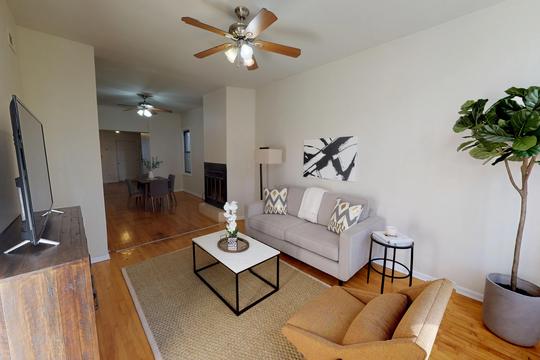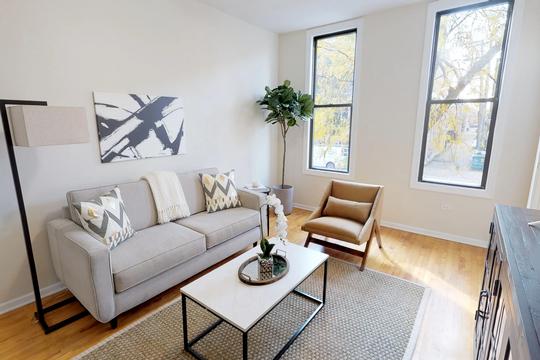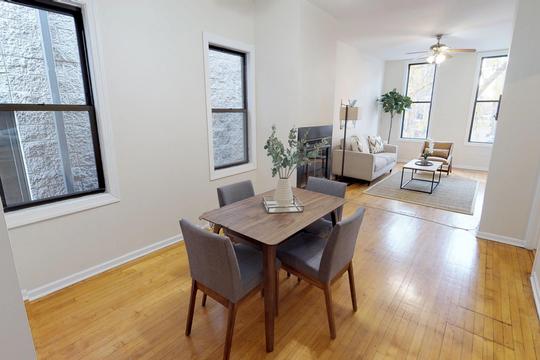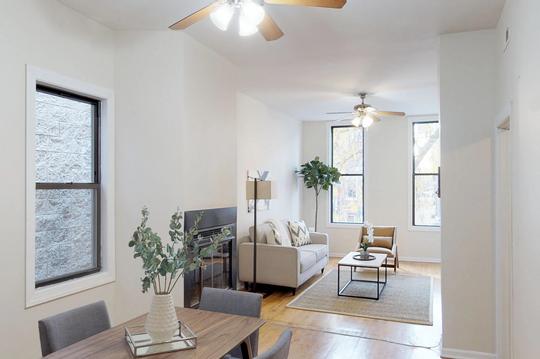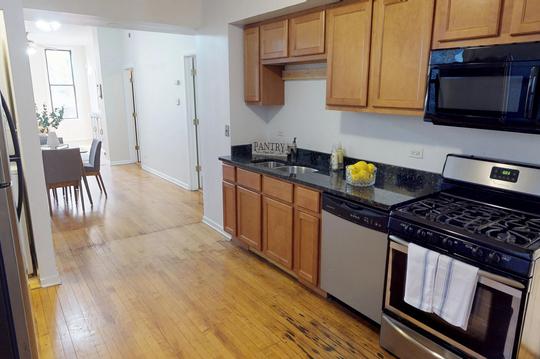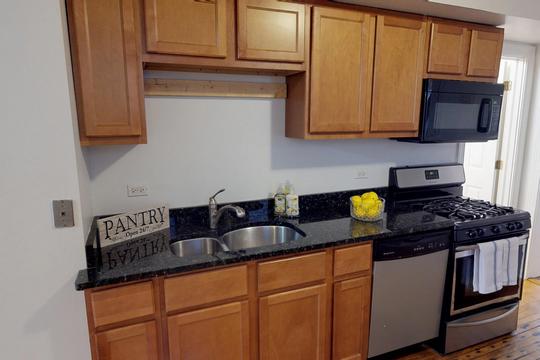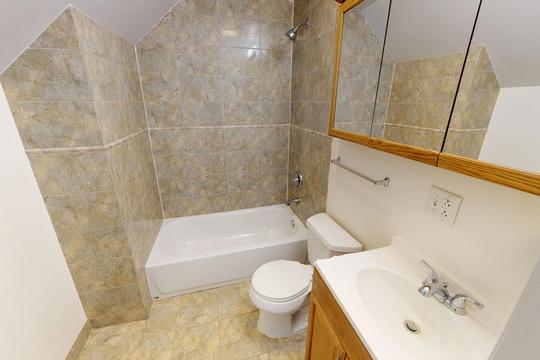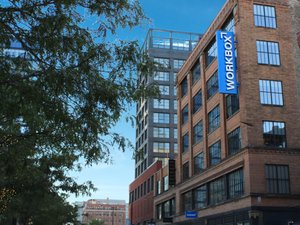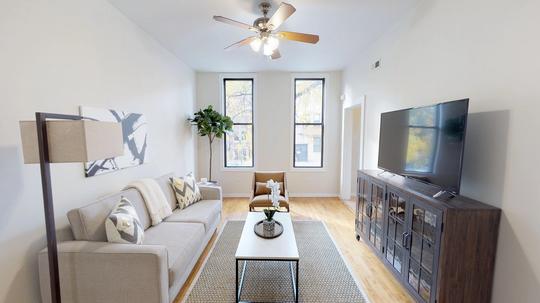
A new co-living and home rental service startup has come to Chicago to compete among the other various companies that want to make city living more affordable and enjoyable for millennials, transient workers and those who need flexible living arrangements.
San Francisco-based Bungalow announced Thursday that it has launched in Chicago, starting with two homes available for rent in Bucktown and Wicker Park. Bungalow, which was founded in 2017 and officially launched in August, signs long-term leases with owners of multi-bedroom homes and apartments, and acts on their behalf to rent out the rooms.
The company furnishes the homes’ common rooms, provides regular housekeeping services, and all amenities and utilities are included in tenants’ rent. The model allows tenants to find a home with roommates while eliminating the hassle to find and coordinate a group of people to live with, which can be especially difficult if you’re new to a city, said Justin McCarty, Bungalow’s co-founder, chief operating officer and Illinois-native. Bungalow allows tenants to sign short-term leases for as little as four months.
Tenants, which are required to submit references and undergo a background check before being admitted into Bungalow’s network, are given the option to meet their potential roommates to gauge compatibility before actually moving in. And once someone is accepted into Bungalow’s network, it is very easy for them to switch to other homes in their city and beyond.
McCarty said the company chose to launch in Chicago because like other big cities, affordable housing for those living on their own is becoming harder to find. Bungalow advertises that its options are on average 30 to 40 percent cheaper than a studio apartment in the same or similar area.
Gallery
“We’ve been able to get great traction in the coastal cities, but all of the trends are the same for Chicago—there’s job growth, people are feeling that housing is becoming unaffordable and are craving that sense of community,” McCarty said.
Besides Chicago, Bungalow has properties available for rent in the Bay Area, Los Angeles, New York, San Diego, Seattle, Portland and Washington D.C. Across all its markets, Bungalow has more than 900 members and has raised $64 million in venture capital funding, according to Crunchbase.
McCarty says Bungalow differentiates itself from other co-living companies because instead of buying and operating entire apartment buildings, Bungalow never owns any of its properties. Through its long-term leases with individual home-owners, they save money on purchasing property and simplify the landlord responsibilities for homeowners who may not want to deal with the work it takes to constantly find new tenants.
“We’re looking for large homes or large apartments in great locations,” McCarty said. “The birth rate has decreased in the last few decades, so families aren’t really looking for these four and five-bedroom properties anymore, so they are often hard to rent out.”
On average, Bungalow’s long-term leases with homeowners last for about three years, McCarty said, and the terms of each contract are different. Bungalow keeps a portion of the rent, but McCarty wouldn’t disclose how much that typically is.
Competing co-living companies in Chicago include New York-based Common, which has three buildings in the city, and Quarters, which opened a building in Fulton Market in April. Others include L, a 120-unit building in Logan Square, and 30 East, a 134-unit property in the South Loop.
Going forward, Bungalow says it plans to expand to other popular Chicago neighborhoods that attract young renters, like Lincoln Park and Little Italy.
“Chicago is a great city. Each neighborhood has its own personality,” McCarty said. “I’ve been thinking about launching Bungalow in Chicago since we started, and so I’m very excited it’s finally here.”
